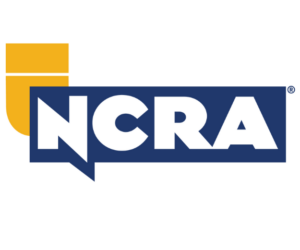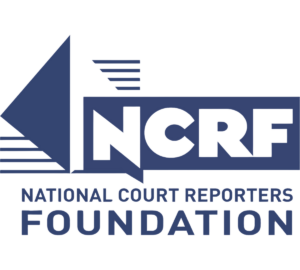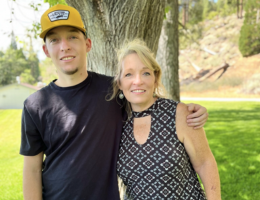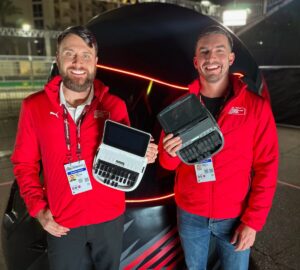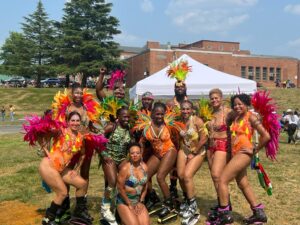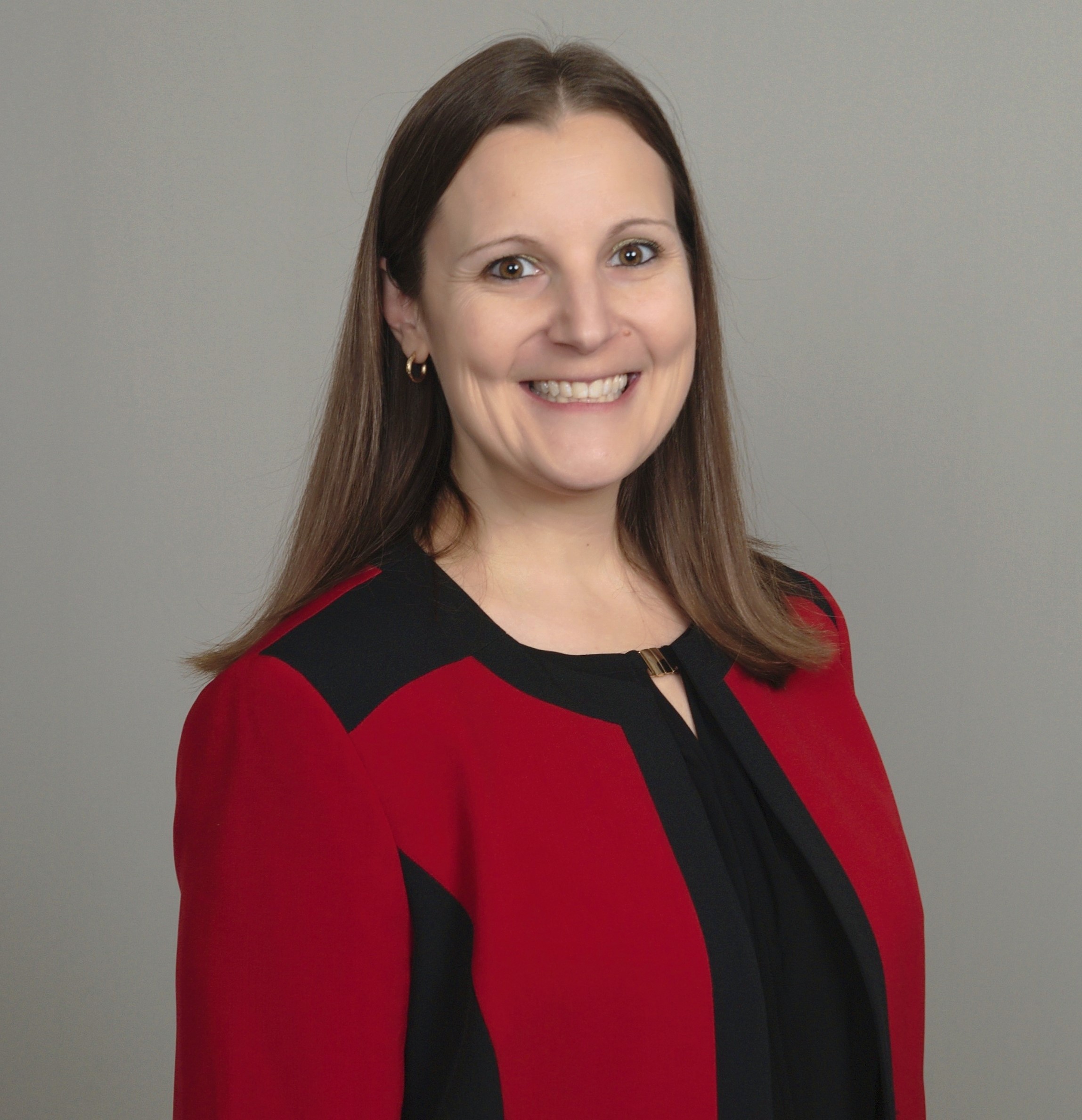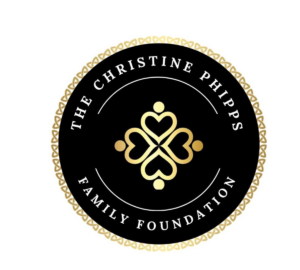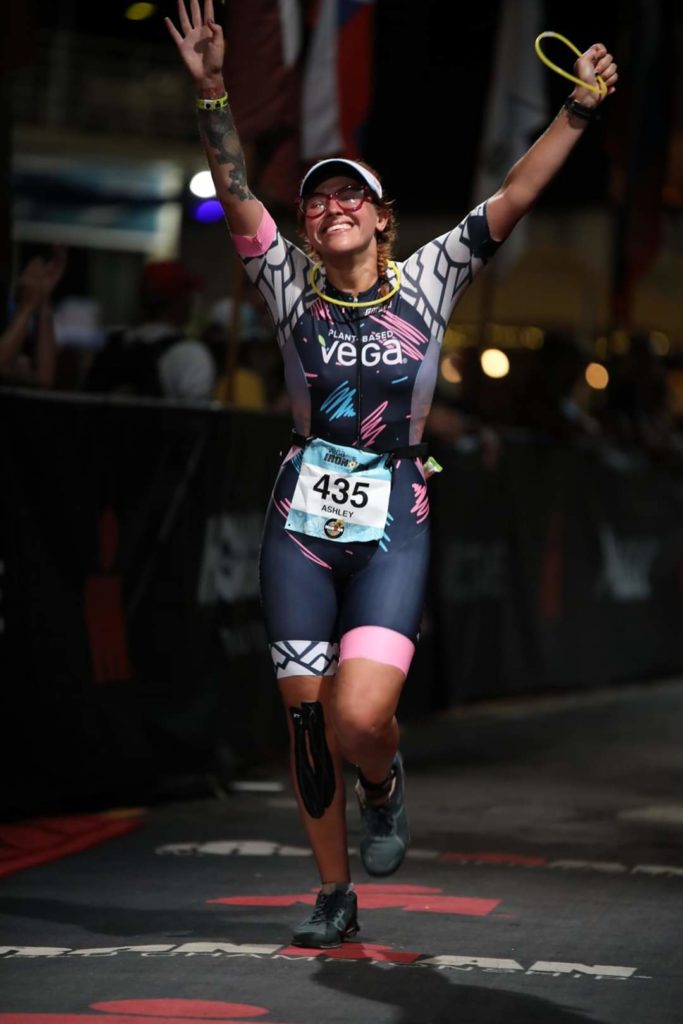
NCRA members are known to be driven to succeed in their professional areas of work, but often they are also just as driven to succeed in their chosen hobbies and activities outside of work. Case in point is NCRA member Ashley Zaccaro, a 25-year-old official court reporter who resides in Brooklyn, N.Y. Originally from New Jersey, Zaccaro is also a certified yoga instructor, a published writer, a fur mom to two beautiful cats, and a bride-to-be with a wedding planned for October. But that’s not all. In between work and her other activities, Zaccaro, who took up running in 2011, is also an Ironman World Championship competitor.
The Ironman World Championship is a series of triathlon races that include a swim, a bike ride, and a run. The event is grueling, requiring competitors to cover a total of 70.3 miles over the course of the three legs of the race for a half Ironman and 140.6 miles for a full Ironman race.
The JCR Weekly recently caught up with her to find out more about what motivates her and what it’s like to be a world championship competitor.
JCR | How did you get involved with the Ironman World Championship?
AZ| I was training for my second full distance race when I was selected to go to the 2019 Ironman World Championship in Hawaii as the 2019 Women for Tri Inspirational Woman of the Year! Women for Tri is a nonprofit organization within the Ironman Foundation, Ironman’s giveback initiative, which seeks to remove boundaries that keep more women from becoming involved in triathlons. Part of how they do this is through grant funding to tri clubs and organizations that are doing more to involve women.
JCR | What year did you compete, and where was it held?
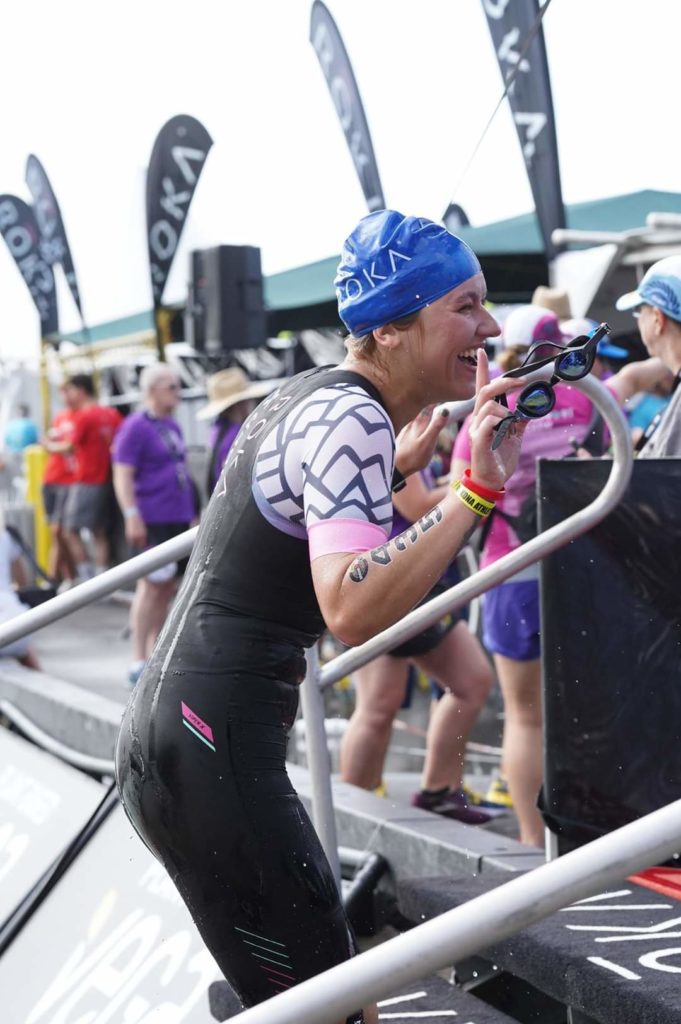
AZ| I became a runner in 2011 and, within a few months, began training for my first marathon, the New Jersey Marathon in Long Branch in 2012. My first triathlon ever was a women’s-only super sprint in New Orleans, La., that my running partner and I did sort of on a whim in 2014. But it wasn’t until 2017 that my triathlon ‘career’ really began. I competed in the New York City Triathlon that July, my first half Ironman the following year, 2018, in Lake Placid, N.Y., and then my first full Ironman in Patagonia, Chile, in December 2018, with many races in between and since.
JCR | Was 2019 your first time competing in this championship?
AZ | It was my first time competing in the World Championship!
JCR | What did you have to do to qualify?
AZ | I believe it’s something like 95 percent of participants qualified through placing 1st, maybe 2nd or 3rd depending on the race, in their age group in one of the Ironman races the previous year. I got in through a special slot, so I did not qualify that way. I raised more than $25,000 for Women for Tri as part of my entry. My goal is to qualify the traditional way in four years, but it’s really challenging!
JCR | How did you place in the 2019 Ironman World Championship?
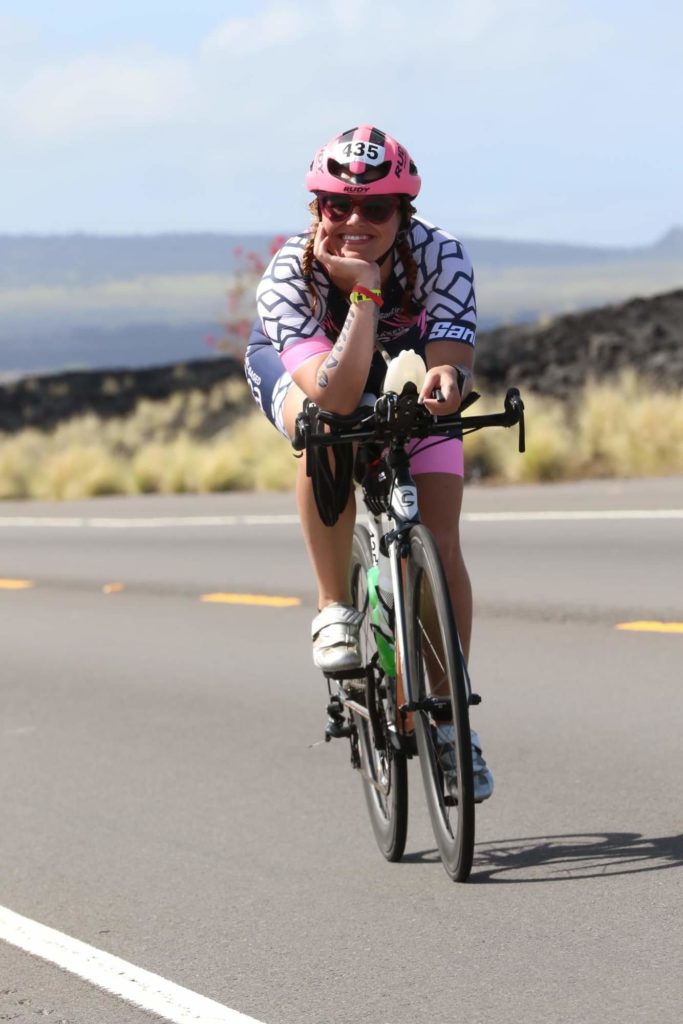
AZ | I finished in 13 hours, 7 minutes, and 50 seconds. I came in 1869th place out of 2446 starters, 464th out of 610 females, and 45th out of 50 in my age group.
JCR | What motivates you now?
AZ | Training and racing are extremely therapeutic to me. It is the best thing for my mental health as well as my physical health, and it’s an outlet for me to deal with the stressors in my life. It builds my self-esteem. It gives me an amazing, supportive, strong community, and it just makes me so happy. Now more than ever I am grateful to have this outlet. Even though races are getting postponed, I’m finding myself and many of my triathlete friends are used to dealing with extreme conditions and are coping pretty well with it, generally.
JCR | Was this your first time competing?
AZ |This was my second full distance race, but I believe I’ve competed in 22 triathlons total, if my count is correct.
JCR | How long did you practice for?
AZ | For a full Ironman distance race, my training load averages around 20 hours a week. The winter is “off season,” so I focus more on strength and conditioning and recouping, but I train all year round.
JCR | Describe what a typical practice day was like for you.
AZ | During the week I usually have two workouts that last an hour and a half to two hours total. This could be a 45-minute swim and 45-minute weightlifting session, an hour bike and a half-hour run, for example. Saturdays are my long bike day, followed immediately by a shorter run; that’s called a “brick,” to do a bike straight into a run. For Ironman training, my long bike ride peaks at about a seven-hour ride. Sundays are usually a long run, which peaks around three and a half hours, a short easy bike session, and a recovery swim.
JCR | What would you say to others considering competing at this level?
AZ | I think most people competing in these sorts of distances would agree there are sacrifices you have to make, and you have to love the training. It’s a lifestyle. It’s not easy. But it builds so much more than muscle. For me, it is so worth it.
JCR | Do you think your profession as a court reporter, where you have to practice every day, aided in your being disciplined to practice for this competition?
AZ | I definitely think that everyone who made it through court reporting school has accessed that same part of your brain that we use as endurance athletes. Court reporting school is so tough and unforgiving, and it can feel never-ending, but to make it through we all had to push past the desire to give up, and that is something triathletes do as well. So yes, I’d say it either aided — or maybe it just makes sense that the kind of brain that would be drawn to court reporting would also thrive in an endurance event.
JCR | What is your best event?
AZ | I was naturally the best at cycling, but much to my surprise, my run has been where I’ve placed the highest overall lately! My transitions aren’t too shabby either.
JCR | What is your favorite event and why?
AZ | Of swimming, biking, and running, it honestly depends on the day, but I love how simple running is. Throw on shoes and go.
As far as which race I’ve done which is my favorite, that’s really tough. Patagonia was the experience of a lifetime. It was an extreme 140.6 race, so the swim was in cold water, the bike was up a mountain, and the run was a trail run that also went through a small lake at mile four of the run randomly. It was such a beautiful, special experience, and I’ll love it forever.
The world championship in Hawaii was such a celebration of triathlon. The whole week, Kailua-Kona just becomes triathlete village, and it was unbeatable. Also being in Hawaii was wonderful.
Chattanooga 70.3 in Tennessee I loved more than I can really understand. It was so open and free, and as someone who lives in a city, it was a great relief.
Lahti 70.3 in Finland was cool because it started at 4 p.m. but the sun stays up until midnight. I had a pretty rough race that day, but afterward my fiancé and I stayed in a yurt. Every race is a crazy adventure.
And Lake Placid 70.3 is a beautiful course, and there’s Olympic village stuff everywhere. It’s very inspiring to be there. The morning of the race the air was 30 degrees, but the lake was 70 degrees, so it was steaming like a hot tub and one of the coolest sights.
JCR | Do you plan to compete again? If so, when?
AZ | Oh, yes! I love competing. My next race was supposed to be Florida 70.3 but that was postponed due to coronavirus. Tulsa 140.6 in Oklahoma was after that and that got postponed. I’m planning to do Steelhead 70.3, age group national championships in Milwaukee, Wis., some other local races, and my hope was to qualify this year for the 70.3 World Championship in New Zealand, but everything is up in the air right now.
JCR | How did you learn about the court reporting profession?
AZ | I was working at a real estate law firm as an administrative assistant after abruptly deciding on my first day of university that I didn’t want to go to college. I was interested in law but didn’t want to be a lawyer. I had always typed really fast as a child and never expected that skill to come in handy. And I was obsessed with the Jodi Arias trial. I discovered court reporting existed from watching that. Two years later when I was planning to move to New York City, I was deciding whether I wanted to get a full-time job there or go to school, and I went to the court reporting school to inquire more about it. When I was there, the program director told me “It’s like playing a musical instrument,” and as an avid musician in high school, that sold me. I made my decision to enroll.
JCR | What court reporting program did you graduate from?
AZ | I graduated from New York Career Institute, now known as Plaza College.
JCR | How long have you worked as a court reporter?
AZ | Just over four years.
JCR | Have you always worked as an official?
AZ | I started at the Manhattan District Attorney’s Office in New York as a grand jury stenographer in 2016 and went to Manhattan Family Court in 2018.
JCR | What court do you work in now?
AZ | I recently started at Manhattan Supreme Court Criminal Term, but because of the quarantine I haven’t actually begun working.
Ashely Zaccaro can be reached at ashleyczac@gmail.com.
